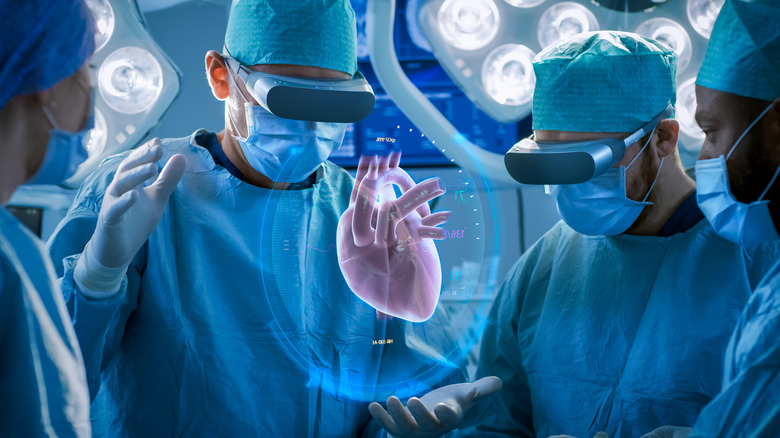How Artificial Intelligence May Soon Predict Your Risk Of Cardiac Arrest
The Sudden Cardiac Arrest Foundation reports that 1,000 people experience sudden cardiac arrest every day in the United States. As a serious health condition, survival rates are low, with up to 90% of those affected dying before receiving emergency medical attention, reports the U.S. Centers for Disease Control and Prevention (CDC).
By factoring in family medical history, lifestyle, and demographic information, doctors are able to predict a patient's risk level for heart disease (via WebMD). However, further details — such as predictions as to when a patient may be most prone to sudden cardiac arrest during the course of their life — remain unable to be determined. Now, through the development of artificial intelligence (AI) imaging technology, researchers at Johns Hopkins University are working toward replicating patient heart models that are able to project how many years into the future a patient is likely to experience sudden cardiac arrest, as published in Nature Cardiovascular Research.
AI technology could predict sudden cardiac arrest risk
Researchers at Johns Hopkins University rendered 3D computational heart models of patients diagnosed with ischemic heart disease. Through electrical stimulation, they observed how effectively the digital cells carried energy throughout the heart (via WebMD). Areas where the electrical impulse was blocked indicated the presence of damaged scar tissue, which prompted irregular heartbeats, thereby placing the patient at an increased risk for sudden cardiac arrest.
Further study findings revealed that in nearly 270 patients, the technology was able to predict the timeline for sudden cardiac arrest by up to 10 years (via WebMD). Researchers believe that having a more well-rounded picture of a patient's health status will allow physicians to make more informed decisions in regard to early intervention and treatment options. One of the lead authors of the study, Dr. Dan Popescu, elaborates via WebMD, stating, "Having clinicians use this technology in the decision-making process will provide confidence in a better diagnosis and prognosis."
The use of computational heart models in clinical settings still faces many obstacles, including the need for further research, FDA approval, and physician willingness to implement the new medical technology (via WebMD). Even so, Dr. Natalia Trayanova of the Johns Hopkins Department of Biomedical Engineering estimates that the availability of such technology could be seen in as little as two years.


